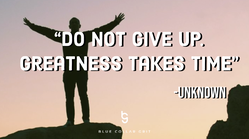My Bad I’ve heard several hard-nosed disciplinarian leaders recently share their disdain with their people uttering the phrase “my bad”. It seems to be viewed by these leaders as a way to shirk off the responsibility of the necessary action and remove themselves from the accountability of it not being completed up to standard. It usually comes off like this: “My bad? I know it was your bad. Who else’s bad was it? It wasn’t mine.” I can see, and appreciate, this perspective, but I believe it neglects a few significant benefits that “my bad” can provide. It’s not all bad … there is actually some significant good that can come from “my bad”. However, it will require a shift in our mindset. Why Should We Care? “My bad” simply means, it was my fault. It is meant to accept responsibility, not avoid it. From this view we can begin to see the value in saying “my bad”. Owning our mistakes is clearly a much needed attribute of a good leader, and anyone pursuing excellence for that matter. Great leaders take more than their share of the responsibility for mistakes, they take all of it. Everything that goes wrong on your team is your fault. It’s all your bad. If you aren’t willing to accept that, then don’t lead. A leader’s job is to serve the team members. Make their job easier, improve their experience, and help them perform at their best. Accepting responsibility for their mistakes is part of serving. I’m a basketball coach. If my team doesn’t execute something in the game properly, that’s my fault. Maybe I didn’t allow enough time in practice for it. Maybe I didn’t explain what I wanted well enough. Or, maybe I had the wrong players in the game. In any case, I could have done something better. Of course the player should have remembered the play or followed through on his job and what he had been coached to do. But he didn’t. If he chose to not do it intentionally then you have a whole separate set of problems, but that’s not the norm. Most people want to do their best and want to contribute to their team. So, there must be a reason he didn’t. That reason is the responsibility of the leader. REAL TALK - Action Steps The application of this mindset requires us to know our team in order to balance accountability with support. Both are needed and possible with “my bad”. The key is knowing who needs what. The diagram above is Jeff Janssen’s Commitment Continuum. It does an excellent job of breaking down the buckets most team members fall into.
On elite teams, there is no “My Bad”. Everything is OUR bad. Each mistake, mishap, and failure is viewed by everyone on the team as their problem. All contributed to it and all will own more than their share. It’s one of the things that makes elite teams elite. For more information on building excellence in your teams, visit us at www.bluecollargrit.com. We would love to know how we could help!
0 Comments
Bet On UsOne of the most common phrases being thrown around professional sports right now is the flamboyant proclamation of arrogance, “I’m betting on myself.” I guess it’s supposed to impress us with the unwavering confidence this athlete magically possesses or shock us by the determination he maintains through a difficult situation.
It does neither for me. Don’t get me wrong, confidence and determination are critically important in achieving our goals and maximizing our potential. We have no shot without them. However, other things matter too … and maybe more. Why Should We Care? Proclamations mean nothing. Action is what matters. In the pursuit of excellence claims, slogans, and promises fall by the wayside. It’s too tough, too challenging, and takes way too long. The emotional claim to bet on yourself is only significant if the following actions and habits reflect this newly found commitment. Habits persist far beyond any bet. I’ve found that those who proclaim the most, persist the least. One of the aspects of teaching and coaching that I’ve always found interesting is what different people do when things get hard. We all know that anything great is on the other side of hard. We like to think of doing hard things as an option, but it’s really not. Atleast, not if excellence is what we seek. If things are going to get hard, then clearly we have to find a way to overcome them. Our ability to display toughness during adversity is a critical element of excellence. And, I believe those betting on themselves are attempting to be as tough as they know how. Here’s the thing though ... you can’t be tough alone. Atleast, you can’t be as tough as you can be alone. By going it alone, we are leaving money on the table. There is more in us that only others can bring out or that we will only give in order to help a teammate. If it’s only about me, it will never be enough. And finally, humility matters. Betting on yourself implies that you’re in the position you’re in solely as a result of you - your efforts, your sacrifices, your work. It’s absurd. Think of all the people that have contributed to making you the person you are. Of course, your family and friends but also people you’ve observed, mentors that have given their time for you, and your competition that provides the challenge that pushes you further and further. REAL TALK - Action Steps So how do we go from focusing on ourselves to focusing on us?
Instead of betting on ourselves, we would be better off betting on us. The willingness and desire to pull together when things get tough rather than scatter and attempt to solve the problem on your own is the mark of a true teammate. They may still be betting on themselves, but they’re doubling down on us. For more information on building excellence in your teams, visit us at www.bluecollargrit.com. We would love to know how we could help Will You Sprint?Most workouts I’m accustomed to have a specific number of sets and reps. Maybe three sets of ten reps. As we complete these workouts, we are careful to be sure to count our reps. And, we typically stop at the scripted number.
Crossfit-style workouts have become popular over the last several years and offer a variation to the traditional set-rep model. Many workouts in the Crossfit model require you to do a certain exercise as many times as possible in a given amount of time. Your score for the workout is usually your lowest rep count in the allotted time. Not counting the reps is close to a catastrophic event. You either have to guess or repeat the round, neither of which make you feel good about the workout. The same mindset surrounds running. Ask a group of friends if they want to go for a run and one of the first questions will be, how far are we running? I share these examples simply to highlight the finality mindset we have become accustomed to in virtually all parts of our life. Why Should We Care? Here’s the problem with it though: it doesn’t apply in the most important aspects of our life. The ones that really matter, that your friends talk about when you’re not around, that we share at your funeral ... those are centered on things in your life that you can’t count and that don’t end. Your relationships, your faith, your personal growth, and your pursuit of excellence do not fall into the finality mindset bucket. There is no destination on these. We can’t get to a point that is “good enough”. As Coach Z used to say: “That’s the funny thing about good enough … it never is.” There is nothing wrong with goals having specific destinations or end times. I like to think of them as benchmarks rather than goals, but what you call them is secondary to your overall understanding of their use. Benchmarks, or goals as they are described here, are nothing more than small, tangible evidence of progress. However, everything is not good about goals. At times, the achievement of, or failure to achieve, a goal will lead directly to that finality mindset. People become so consumed by the benchmarks and minor victories that they lose sight of the true mission: Growth. REAL TALK - Action Steps The realization that there is no finish line should be a freeing thought. Mistakes can be absorbed and used as growth and the race is never over. Remembering that in the daily grind is difficult. Here are a few ideas to keep that long term mentality front and center.
The courage that’s required to sprint when you’re not sure about the finish line is different. But, excellence is different. Anything great in life requires different. Even if those around you are slowing down or dipping their toes into the water to check the temperature, don’t do it. Sprint … Do a cannon ball! For more information on building excellence in your teams, visit us at www.bluecollargrit.com. We would love to know how we could help! Patience or AccountabilityToo patient and you become soft, a pushover.
Too strict and you become cold, a drill sergeant. Neither is a good recipe for an effective, transformational leader. I’ve found the best leaders to balance patience and accountability masterfully. They seem to have an innate ability to know just when to push a little more and when to allow space - when to demand and when to forgive. When we allow excessive time to reach the standard, we are also saying the standard isn’t that important. Passivity, relaxed, cool doesn’t produce excellence. Likewise, a tyrannical drive to the standard dismisses the process we all must pass through in order to reach new heights. Suppressing creativity, working through mistakes, and remaining focused only on yourself doesn’t produce excellence either. There must be an appreciation for the dichotomy between the two. Why Should We Care? Whether we aspire to excellence as an individual, or for our team, we soon realize both patience and accountability are required. The question becomes, how do we know what we need when? The first concept to understand is that excellence requires friction. And, friction requires time to work through. We all know nothing significant is accomplished without overcoming many obstacles. Hard work, persistence, and a positive attitude are all necessary. Patience is too. The second concept to understand pertaining to excellence is that you get what you accept. You don’t get what you want. You don’t get what you ask for. You get what you accept from yourself or those you lead. The standard of accountability you establish within your team will determine your team’s performance level as much as anything else. Notice both of these concepts are centered on the process, not the result. Trusting the process means being patient and realizing excellence will not come immediately. And, our accountability applies to how we go about our work also. By taking care of the process, we give ourselves the best possible chance to achieve the desired result. REAL TALK - Action Steps Executing this balance between patience and accountability is much more of an art than a science. It requires emotional intelligence along with a high level of self-awareness. Here are a few ideas to help you walk that line.
Patience and accountability should not be looked at as opposite ends of the spectrum. They are both tools in your bag as a leader. The best, most impactful, leaders know which tool to pick ... and, equally as important, when to use it. For more information on building excellence in your teams, visit us at www.bluecollargrit.com. We would love to know how we could help! |
About bcI'm a teacher, coach, and parent seeking excellence while defining success on my own terms. Archives
April 2024
Categories |





 RSS Feed
RSS Feed